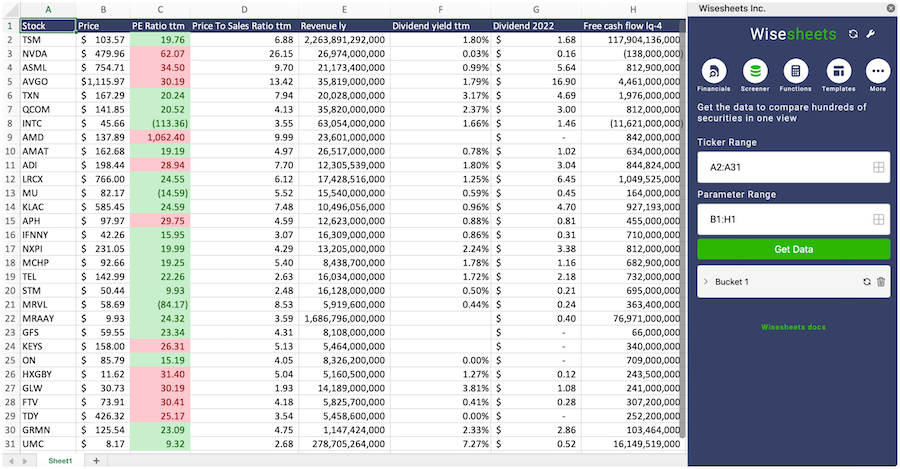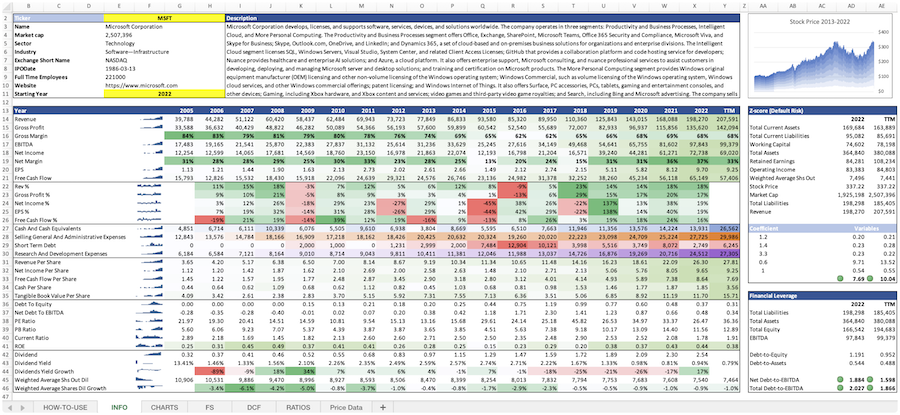Prysmian S.p.A.
PRYMF
Price:
$121.08
Market Cap:
$28.88B
Prysmian S.p.A., together with its subsidiaries, produces, distributes, and sells cables and systems, and related accessories for the energy and telecommunications industries worldwide. The company operates through three segments: Projects, Energy, and Telecom. The Projects segment designs, produces, and installs high and extra high voltage cables for electricity transmission from power plants, and within transmission and primary distribution grids; high voltage cabling systems for terrestrial and submarine applications; submarine cable solutions for power transmission and distribution; data transmission cables; and umbilical cables, hoses, and electrical, optical, and signalling components ...[Read more]
Industry
Electrical Equipment & Parts
IPO Date
2009-04-21
Stock Exchange
OTC
Ticker
PRYMF
PE Ratio
[24.91]
ROE
[21.02%]
Current Ratio
[1.20]
Dividend Yield
[0.79%]
Enterprise Value
[33.24B]
Dividend History
The PE Ratio as of February 2026 (TTM) for Prysmian S.p.A. (PRYMF) is 24.91
According to Prysmian S.p.A.’s latest financial reports and current stock price. The company's current PE Ratio is 24.91. This represents a change of 10.79% compared to the average of 22.48 of the last 4 quarters.
Prysmian S.p.A. (PRYMF) Historical PE Ratio (quarterly & annually)
How has PRYMF PE Ratio performed in the past?
The mean historical PE Ratio of Prysmian S.p.A. over the last ten years is 25.28. The current 24.91 PE Ratio has changed 9.75% with respect to the historical average. Over the past ten years (40 quarters), PRYMF's PE Ratio was at its highest in in the December 2019 quarter at 67.30. The PE Ratio was at its lowest in in the December 2023 quarter at -61.77.
Average
25.28
Median
22.64
Minimum
18.12
Maximum
43.01
Prysmian S.p.A. (PRYMF) PE Ratio by Quarter and Year
Discovering the peaks and valleys of Prysmian S.p.A. PE Ratio, unveiling quarterly and yearly fluctuations to gain insights into the company’s financial performance and market dynamics, offering valuable data for investors and analysts alike.
Maximum Annual Increase = 122.10%
Maximum Annual PE Ratio = 43.01
Minimum Annual Increase = -41.10%
Minimum Annual PE Ratio = 18.12
| Year | PE Ratio | Change |
|---|---|---|
| 2024 | 23.81 | 10.89% |
| 2023 | 21.47 | 18.51% |
| 2022 | 18.12 | -36.01% |
| 2021 | 28.32 | -34.17% |
| 2020 | 43.01 | 122.10% |
| 2019 | 19.37 | -41.10% |
| 2018 | 32.88 | 35.09% |
| 2017 | 24.34 | 14.63% |
| 2016 | 21.23 | 4.81% |
| 2015 | 20.26 | -27.61% |
Prysmian S.p.A. (PRYMF) Average PE Ratio
How has PRYMF PE Ratio performed in the past?
The current PE Ratio of Prysmian S.p.A. (PRYMF) is greater than its 3-year, less than than its 5-year, and less than than its 10-year historical averages
3-year avg
21.14
5-year avg
26.95
10-year avg
25.28
Prysmian S.p.A. (PRYMF) PE Ratio vs. Peers
How is PRYMF’s PE Ratio compared to its peers?
Prysmian S.p.A.’s PE Ratio is greater than FUJIFILM Holdings Corporation (13.89), greater than Wolters Kluwer N.V. (14.24), greater than FUJIFILM Holdings Corporation (13.89), greater than Wolters Kluwer N.V. (14.24), greater than East Japan Railway Company (19.18), greater than Ashtead Group plc (22.01), greater than A.P. Møller - Mærsk A/S (7.98), greater than Daimler Truck Holding AG (15.26), less than Saab AB (publ) (67.41), less than Saab AB (publ) (67.41),
| Company | PE Ratio | Market cap |
|---|---|---|
| 13.89 | $22.97B | |
| 14.24 | $18.57B | |
| 13.89 | $24.44B | |
| 14.24 | $18.38B | |
| 19.18 | $27.65B | |
| 22.01 | $28.12B | |
| 7.98 | $36.78B | |
| 15.26 | $38.52B | |
| 67.41 | $38.86B | |
| 67.41 | $38.12B |
Build a custom stock screener for Prysmian S.p.A. (PRYMF) and other stocks
One of the best ways to find valuable stocks to invest in is to build a custom made screener in your Excel or Google Sheets spreadsheet. This allows you to compare thousands of companies like Prysmian S.p.A. using the financials and key metrics that matter to you in a single view.
The easiest way to set this up is to use the Wisesheets add-on and set your spreadsheet like this:
Covering all these metrics from financial, data, dividend data, key metrics and more you can get all the data you want for over 50+ exchanges worldwide.
Get your free trial here.
Prysmian S.p.A. (PRYMF) and other stocks custom spreadsheet templates
The easiest way to analyze a company like Prysmian S.p.A. or any others is to create a spreadsheet model that automatically retrieves all of the stock data you need.
Using Wisesheets you can set up a spreadsheet model like this with simple spreadsheet formulas. If you change the ticker you can get all of the data automatically updated for you.
Whether you need live data, historical price data, financials, dividend data, key metrics, analyst estimates, or anything else...Wisesheets has you covered.
Frequently asked questions❓
What is the PE Ratio?
How can you use the PE Ratio?
What is Prysmian S.p.A.'s PE Ratio?
How is the PE Ratio calculated for Prysmian S.p.A. (PRYMF)?
What is the highest PE Ratio for Prysmian S.p.A. (PRYMF)?
What is the 3-year average PE Ratio for Prysmian S.p.A. (PRYMF)?
What is the 5-year average PE Ratio for Prysmian S.p.A. (PRYMF)?
How does the current PE Ratio for Prysmian S.p.A. (PRYMF) compare to its historical average?

